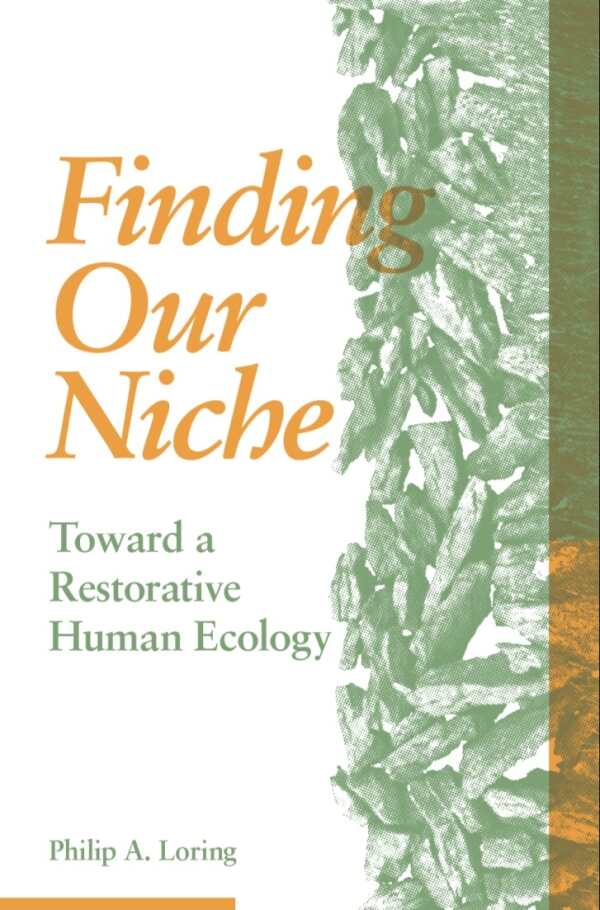Finding Our Niche
Toward a Restorative Human Ecology
Finding Our Niche is a thoughtful environmental proposal that circles ideas of reconciliation and reintegration with nature.
Philip A. Loring’s thought-provoking environmental history text, Finding Our Niche, considers the myths that hamper the reconciliation and reintegration of humans with each other and with nature; it suggests a new basis for change.
Highlighting the differences between the worldviews of colonizers and Indigenous people, the book demonstrates that religious dogma, white supremacy, and ideas of manifest destiny allowed colonizers to see the land as theirs for the taking, and its Indigenous occupants as beings in need of saving. In the process, the book deconstructs myths and suggests how the dominant narrative be changed: through the introduction of science-based concepts, more accurate historical perspectives, and lived experiences.
Loring, a descendant of those who invaded and despoiled Turtle Island, recounts his youthful desire to shed his association with the damage that settlers had done. Early in this passionate text, the suggestion is made that stolen lands be returned to Indigenous tribes; later, taking into account how much the course of history has changed Indigenous groups, settlers’ descendants, and the land alike, this suggestion morphs into an argument for reconciliation and reintegration.
The book illuminates the problems caused by clashing worldviews, with examples of local communities tackling reconciliation and reintegration through practical efforts that work in their particular environments. It argues for humble, respectful listening to, and engaging in conversation with, Indigenous people, supported by the powerful example of a working partnership that led to the restoration of British Columbia’s ancient and sensitive shoreline clam beds. Later, the book shifts its attention to the general reintegration of humanity into the natural world, citing the example of cattle ranchers in Ireland’s fragile Burren who came to see themselves as environmental partners with their animals and nature.
Underlying each area of discussion is the underexamined notion that Western culture has become morally and physically alienated from nature. The book’s vision for human reintegration with nature is strong, but the text is short on actual strategy. It touches on what needs to change, how urgent the need is, and the cultural mindsets that hamper making it, but is too optimistic about the squelching of human urges to own, dominate, and despoil the landscape. Also under addressed is the speed with which modern technologies pollute and dominate sensitive ecologies and sacred places. Not until the afterword does the book’s organizational structure, and its desire to unify its diverse elements into “a form of philosophy rather than a template for action,” become clear.
Finding Our Niche is a thoughtful environmental proposal that circles ideas of reconciliation and reintegration with nature.
Reviewed by
Kristine Morris
Disclosure: This article is not an endorsement, but a review. The publisher of this book provided free copies of the book and paid a small fee to have their book reviewed by a professional reviewer. Foreword Reviews and Clarion Reviews make no guarantee that the publisher will receive a positive review. Foreword Magazine, Inc. is disclosing this in accordance with the Federal Trade Commission’s 16 CFR, Part 255.

